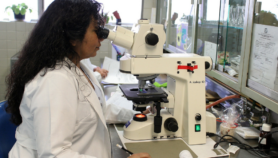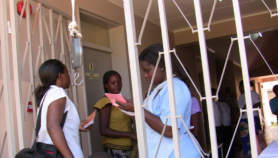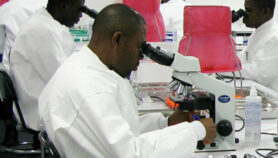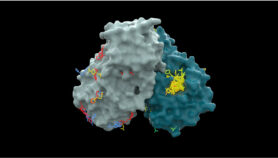By: Catherine Brahic
Send to a friend
The details you provide on this page will not be used to send unsolicited email, and will not be sold to a 3rd party. See privacy policy.
Agricultural experts, ministers and policymakers gathered in Nigeria are calling on African governments to improve access to fertilisers across the continent.
Researchers at the Africa Fertilizer Summit held in Abuja from 9-13 June hope better access to fertiliser will help solve food shortages in Africa.
Gary Toenniessen, director of food security at the Rockefeller Foundation, told SciDev.Net that while too much fertiliser can be a problem, too little fertiliser is equally problematic, as it means soil nutrients are not replenished.
This, said researchers at the summit, has depleted African soils, making them less able to sustain plant life and has led to increasing water scarcity and the spread of deserts.
African agriculture ministers attending the meeting are considering ways to make access to fertilisers easier and more affordable.
One resolution calls on governments to declare fertiliser a strategic resource that is not taxed when it is imported or when it moves from one African country to another.
Another calls on the African Development Bank to provide loans to improve the transport infrastructure that is needed to get fertiliser to farmers.
“Fertiliser is a product that can make money,” said Toenniessen. “Loans are very appropriate financial mechanisms as the supply chain that is put in place can end up paying back the loan.”
According to Toenniessen, African farmers use on average eight kilograms of fertiliser per hectare of land each year, compared to 350 in China and 420 kilograms in Holland.
The summit heard that ‘microdosing’ — placing the equivalent of a bottle cap of fertiliser near a plant — can improve yields, especially in the dry Sahel region directly south of the Sahara.
Toenniessen added that the summit would encourage Africa to produce more fertiliser itself, saying that the continent has an ample supply of the rock phosphate needed to make its phosphate component.
The summit has attracted criticism from a campaign in favour of organic farming. The International Federation of Organic Agriculture Movements has put out a statement arguing against chemical fertilisers on the grounds that they break down natural cycles, creating a dependence on chemicals.
African heads of state will today (13 June) be presented with the resolutions agreed by the summit.












